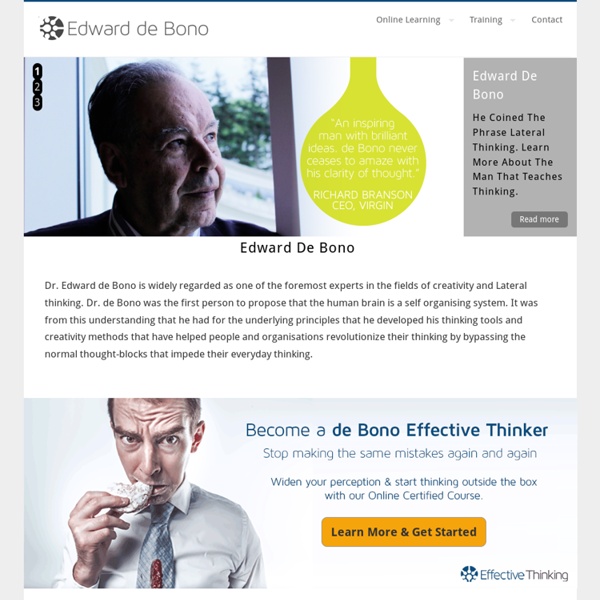



Howard Gardner Howard Earl Gardner (born July 11, 1943) is an American developmental psychologist and the John H. and Elisabeth A. Hobbs Professor of Cognition and Education at the Harvard Graduate School of Education at Harvard University. He is the Senior Director of Harvard Project Zero, and since 1995, he has been the co-director of the Good Project. The author of over twenty books translated into over thirty languages, he is best known for his theory of multiple intelligences, as outlined in his book Frames of Mind: The Theory of Multiple Intelligences (1983).
Mimi Ito Biography Mizuko Ito is a cultural anthropologist of technology use, examining children and youth’s changing relationships to media and communications and is Professor in Residence and John D. and Catherine T. MacArthur Foundation Chair in Digital Media and Learning at the University of California, Irvine, with appointments in the University of California Humanities Research Institute, the Department of Anthropology, and the Department of Informatics. Her work on educational software appears in Engineering Play: A Cultural History of Children’s Software. In Japan, her research has focused on mobile and -portable technologies, and she co-edited a book on that topic, Personal, Portable, Pedestrian: Mobile Phones in Japanese Life. She has led a three-year collaborative ethnographic study, funded by the MacArthur Foundation, examining youth new media practices in the US, and focusing on gaming, digital media production, and Internet use.
Dendrite Welcome to Dendrite Dendrite delivers learners, teachers, leaders and parents’ outstanding learning and development solutions from around the world. Brought to you by The Learning Partnership.com, an organisation dedicated to improving the birth to nineteen learning journey, the platform is designed to optimise this learning journey. Free diagnostic solutions in learning, teaching, leading and parenting help you to access the specific video learning from all of our partners that will help you develop your specific capabilities. The community structure and in-built screen, video and audio capture device allows you to share your great practice and new ideas with other users, and edit this into structured learning content for your community of users.
The Six-Lesson Schoolteacher, by John Taylor Gatto Call me Mr. Gatto, please. Twenty-six years ago, having nothing better to do, I tried my hand at schoolteaching. My license certifies me as an instructor of English language and literature, but that isn't what I do at all. What I teach is school, and I win awards doing it. 9 Characteristics Of 21st Century Learning The label of “21st Century learning” is vague, and is an idea that we here at TeachThought like to take a swing at as often as possible, including: –weighing the magic of technology with its incredible cost and complexity –underscoring the potential for well thought-out instructional design –considering the considerable potential of social media platforms against its apparent divergence from academic learning Some educators seek out the ideal of a 21st century learning environment constantly, while others prefer that we lose the phrase altogether, insisting that learning hasn’t changed, and good learning looks the same whether it’s the 12th or 21st century.
Re-imagining education: from Gandhi’s grandson to a school without classrooms A few months ago, on a remote island off the coast of Stockholm, I met another Change Leader who has truly re-imagined learning for the 21st century. Following a tragic case of vandalism in which his school burnt down to the ground, principal Lennart Nilsson asked his local community what they wanted their new school to look like. Parents, policy makers, teachers and pupils collectively decided on a new kind of learning environment – rooted in the ‘real world’ and based on the natural ways children learn. Pupils work in mixed-aged teams of around 75 children and have sub-teams within that group. Instead of following lessons in classrooms, they create projects in flexible, open spaces. Depending on the task, they work with learners of their own age or get together with others who share the same interest.
100 Awesome Classroom Videos to Learn New Teaching Techniques With so many good teachers out there, it’s fortunate they can share their knowledge via video on the Internet. From the funny to the poignant, these glimpses into the lives of teachers and their students will keep you entertained while learning a little something as well. Whether you are a new teacher storing up tips and tricks or an experienced teacher who could just use a fresh perspective, you are sure to find something helpful among these videos. The Basics Reading, storytelling, math, and science all get coverage with these videos that show how some Teaching Storytelling in the Classroom. Watch children tell stories as a backdrop to educators talking about the storytelling experience. Headteacher: “Time to kill off the exercise book” A headteacher has called for schools to throw out their exercise books – with pupils instead spending their time making products that can change the world around them. Peter Hyman, headteacher and co-founder of School 21, in East London, was speaking to 1,500 school leaders today at the Inspiring Leadership Conference in Birmingham. He said: “We need to kill off the exercise book – it’s no wonder pupils doodle in it.